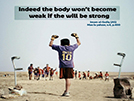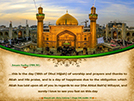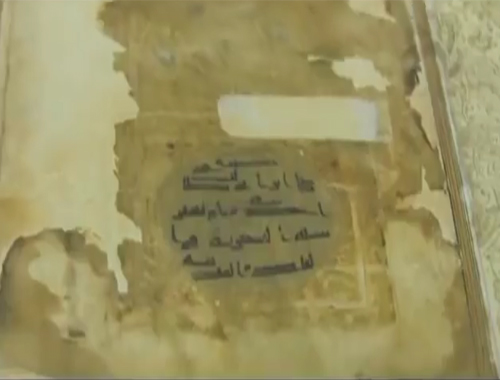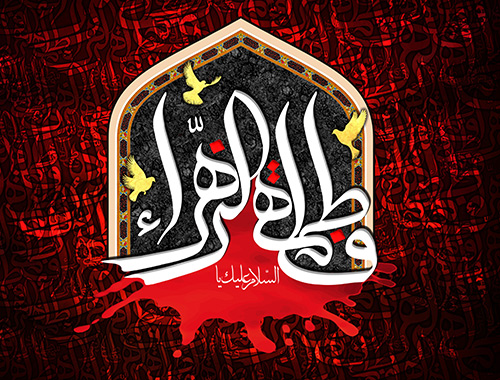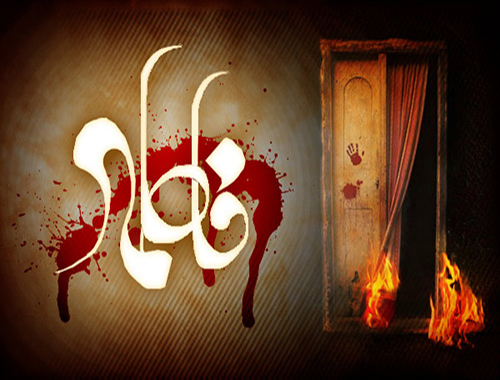verse27
- Details
- Hits: 2167
Section 5
Jews warned against their wicked plots
Cain's aggression - The Israelites warned - punishment for those who war on the Apostle (Muhammad).
(27) وَاتْلُ عَلَيْهِمْ نَبَأَ ابْنَيْ آدَمَ بِالْحَقِّ إِذْ قَرَّبَا قُرْبَانًا فَتُقُبِّلَ مِن أَحَدِهِمَا وَلَمْ يُتَقَبَّلْ مِنَ الآخَرِ
قَالَ لَأَقْتُلَنَّكَ قَالَ إِنَّمَا يَتَقَبَّلُ اللّهُ مِنَ الْمُتَّقِينَ
27. " (O' Prophet!) Recite to them the truth of the story of the two sons of Adam when they offered each a sacrifice, but it was accepted from the other. (The one) said: ' I shall certainly slay you.' (The other) said: ' verily Allah accepts only from the pious ones '."
Commentary:
The objective meaning of ' reciting the truth ', maybe, is an indication to the idea that the explanation of this event has been distorted in the Turah and it has been combined with superstitions; hence, what is stated in the Qur'an is ' the truth '.
" (O' Prophet!) Recite to them the truth of the story of the two sons of Adam when they offered each a sacrifice, but it was accepted from the other. (The one) said: ' I shall certainly slay you.'..."
In Islamic literature and in the Turah, (Genesis, Chapter 4, No. 3 to 12), (1) it is recorded that Abel was a shepherd and he offered his best lamb as the sucrificial animal. But, Cain who was a farmer, brought the worst part of his agricultural product to sucrifice. The Qur'an also says: " You will never attain righteousness unless you spend out of what you love..." (2)
Therefore, the main principle is striving to draw near to Allah, not to simply sucrifice. Whatever the sucrificial thing may be, the criterion of the acceptance of deeds is piety.
"...' verily Allah accepts only from the pious ones '."
Also, we must know that the expansion of envy stretches forth up to slaying one's brother; so, we must avoid this quality.
"... (The one) said: ' I shall certainly slay you.'..."
(1) 3. And in process of time it came to pass, that Cain brought of the fruit of the ground an offering unto the LORD.
4. And Abel, he also brought of the first lings of his flock and of the fat thereof. And the LORD had respect unto Abel and to his offering.
5. But unto Cain and to his offering he had not respect. And Cain was very wroth, and his countenance fell.
6. And the LORD said, Cain, Why art thou wroth? and why is thy countenance fallen?
7. If thou doest well, shall thou not be accpted? and if thou doest not well, sin lieth at the door And unto thee shall be his desire, and thou shalt rule over him.
8. And Cain talked with Abel his brother; and it came to pass, when they were in the field, that Cain rose up against Abel his brother and slew him.
9. And the LORD said unto Cain. Where is Abel thy brother? And he said, I know not: Am I my brother's keeper?
10. And He said, What hast thou done? the voice of thy brother's blood crieth unto Me from the ground.
11. And now art thou cursed from the earth, which hath opened her mouth to receive thy brother's blood from thy hand:
12. When thou tillest the ground, it shall not henceforth yield unto thee her strength: a fugitive and a vagabond shalt thou be in the earth.
(2) Sura 'Al-i-'Imran, No. 3, verse 92

